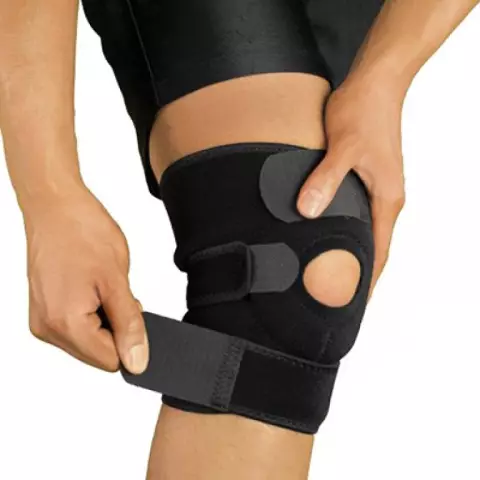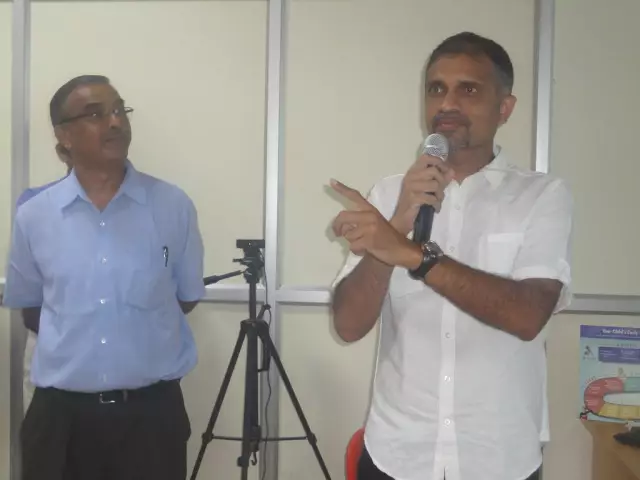- Author Rachel Wainwright wainwright@abchealthonline.com.
- Public 2023-12-15 07:39.
- Last modified 2025-11-02 20:14.
Why people choose treatment in Germany
Treatment in Germany is an opportunity to take advantage of the most modern methods of therapy, which fully meet the definition of "medicine of the 21st century".
German medicine has largely determined the development of world medicine, new types of surgical operations were first tested here, which became the gold standard, X-rays and many drugs were created that can now be bought at any pharmacy (the most famous example is aspirin, created in the laboratories of the German company Bayer).
German manufacturers of medical equipment are also well known - digital X-ray machines and tomographs manufactured by Siemens are now installed in almost every major clinic in the world. And, of course, one cannot fail to note the high professionalism of German doctors.

Treatment in Germany
German medicine is phenomenally developed, thanks to the active participation of the state (€ 4,506 per capita), almost all clinics in Germany are equipped with modern equipment. There are at least four doctors for every thousand of the population, which is one of the best indicators among healthcare systems in different countries.
Germany is among the top 10 European countries with patient-centered healthcare according to a study published in the Euro Health Consumer Index. A patient at a German clinic can request any kind of service at any time - both in terms of medical care and in terms of living conditions.
Organization of treatment in Germany
Many medical tourists travel to Germany for treatment on their own, especially those who already have travel experience and knowledge of the German language. The majority of Russian-speaking patients prefer to use the services of companies specializing in medical tourism. An example of such a service is https://docland.ru/, its employees can help you both find a suitable clinic and organize the trip itself. It is enough just to indicate your contact information on the service website, the managers will call you back and explain everything (moreover, the services of the service, unlike most other similar sites, are completely free).
The best clinics in Germany
As elsewhere in the world, the list of the best hospitals in the country mainly includes university ones. Here is a partial list of the most famous German hospitals.
- University Hospital Freiburg.
- University Hospital Heidelberg.
- Munich clinic on the right bank of the Isar River.
- Berlin Clinic Charite.
- University Medical Center Hamburg.
- University Hospital Marburg.
- University Hospital Aachen.
- University Hospital Bonn.
- The cost of treatment in Germany
Therapy in German clinics is somewhat more expensive than in Eastern Europe. For comparison, procedures included in the standard in vitro fertilization program cost about € 2000-5000, angioplasty - about € 6000, hip replacement - € 15,000, heart valve replacement - € 20,000. In general, compared to the prices of American clinics, here you can save at least two to three times.

How to get treatment in Germany?
First of all, you should take care of obtaining a Schengen visa. There is a special visa that is issued for undergoing treatment in Germany (the same visa can be issued to persons accompanying the patient). Visa processing is handled by the German consulate, travel companies and specialized intermediaries. The cheapest way to get a visa is through a consulate, faster - through intermediaries.
After obtaining a visa, everything is standard - you get on a plane and fly to the city where the clinic of your choice is located.
Why do people choose treatment in Germany?
It is possible to assess the thoroughness and professionalism of German doctors at least by such an indicator as the average time that patients spend in clinics. In the USA, for example, it is about 6 days. In German clinics, the average patient spends 30% more time - about 9 days.
According to the BBC, in terms of the frequency of use for diagnostics of such modern equipment as magnetic resonance imaging, Germany is ahead of even the UK. The average waiting time for medical or diagnostic procedures is lower than in US clinics.

German doctors are specialists with a level of qualification that one cannot but envy. Here, doctors study at universities that were created in the 15th century. For example, the Faculty of Medicine at the University of Freiburg opened its doors in 1457. In Russia, for comparison, typography was introduced only a hundred years later. Despite its gray history, German medicine is one of the most innovative in the world.
German surgeons carry out the most complex operations and are the authors of breakthrough treatment methods. Here, the world's first portosystemic liver bypass surgery (TIPS) was used and the world's first combined heart-lung transplant was performed. In 2010, oncological surgeons at the University Hospital Freiburg performed the first laparoscopic removal of a malignant tumor of the head of the pancreas in the history of medicine.
Found a mistake in the text? Select it and press Ctrl + Enter.






